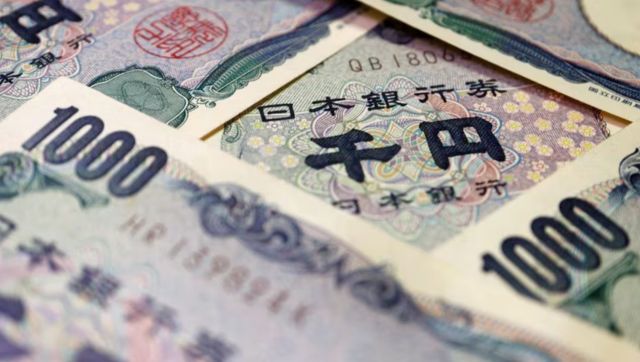Japan’s economy unexpectedly slipped into a recession on Thursday and the country has lost its spot as the world’s third-largest economy.
What has led to a recession in Japan?
Weak domestic demand has weighed on Japan’s economy and led to an unexpected shrinking for the second consecutive quarter, raising uncertainty about the central bank’s plans to exit its ultra-easy policy sometime this year.
When does a country go into recession?
Two consecutive quarters of contraction are typically considered the definition of a technical recession.
Which country has replaced Japan?
Germany is now the world’s third-largest economy.
Japan’s economy slipped to the fourth-largest in the world in US dollar terms last year due to households and businesses cutting spending for a third quarter in a row.
The International Monetary Fund (IMF), in October last year, had forecast that Germany was likely to overtake Japan as the world’s third-largest economy when measured in US dollars.
However, a change in ranking will only be declared by the IMF once both countries have published the final versions of their economic growth figures. It began publishing data comparing economies in 1980.
Japan’s GDP
Japan’s gross domestic product (GDP) contracted by a worse-than-expected 0.4 per cent in the last three months of 2023, compared to a year earlier.
It came after the country’s economy shrank by 3.3 per cent in the previous quarter.
What’s next?
The weak economic data may cast doubt on the Bank of Japan’s (BOJ) forecast that rising wages will underpin consumption, and justify phasing out its massive monetary stimulus.
“There’s a risk the economy could shrink yet again in the January-March quarter due to slowing global growth, weak domestic demand and the impact of the New Year quake in western Japan,” a report by Reuters quoted Takuji Aida, chief economist at Credit Agricole, as saying.
“The BOJ could be forced to sharply downgrade its rosy GDP forecasts” for 2023 and 2024, he added.
Figures that have put Japan into recession
As per the data, private consumption, which makes up more than half of economic activity, fell 0.2 per cent against a 0.1 per cent gain seen by economists. The reason for this is said to be the tightening of the budget by households battling with rising costs of living.
Household spending fell 2.5 per cent in December versus a year earlier, a 10th straight month of declines, as wage gains lagged inflation.
Capital expenditure, which is another key private-sector growth engine, fell 0.1 per cent, compared with forecasts of a 0.3 per cent gain.
External demand, or exports minus imports, contributed 0.2 percentage point to GDP as exports rose 2.6 per cent from the previous quarter, the data showed.
The BOJ has been working to end negative rates by April and overhaul other parts of its ultra-loose monetary framework. However, it is likely to go slow on any subsequent policy tightening amid lingering risks, a Reuters report cited sources as saying.
Though BOJ officials have not given any hint as to when they could exactly end negative rates, several market players expect such an action to happen either in March or April.
The report mentioned some analysts saying Japan’s tight labour market and robust corporate spending plans are keeping alive the chance of an early exit from the ultra-loose policy.
“While the second consecutive contraction in GDP in Q4 would suggest that Japan’s economy is now in recession, business surveys and the labour market tell a different story. Either way, growth is set to remain sluggish this year as the household savings rate has turned negative,” Marcel Thieliant, head of Asia-Pacific at Capital Economics said.
“The (BOJ) has been arguing that private consumption has ‘continued to increase moderately’ and we suspect that it will continue to strike an optimistic tone at its upcoming meeting in March,” Thieliant said, sticking to his projection the bank will end its negative interest rate policy in April.
How has yen reacted to Japan’s recession news?
There was not much of a change in the yen following the release of the data. The Japanese currency last stood at 150.42 per dollar, pinned near a three-month low hit earlier in the week.
The Nikkei rose 1 per cent, reversing some of its losses made from the previous session, possibly on expectations the BOJ may continue with its massive easing programme for longer than expected.
With inputs from agencies


)




)
)
)
)
)
)
)
)